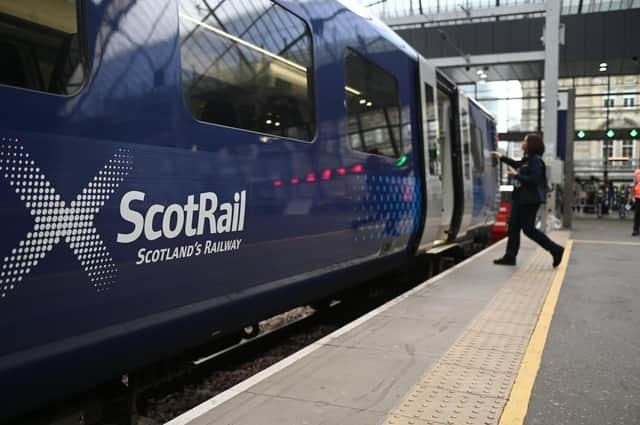ScotRail service cuts: Drivers in pay dispute should beware biting the hand that feeds them – Scotsman comment


Less than two months later, an industrial dispute over drivers’ pay will result in nearly a third of ScotRail’s services being scrapped for an indefinite period. Rather than give in to union demands, the train operator will instead cut nearly 700 weekday trains so it can provide reliable services across the network.
An outraged Lindsay complained “this is what happens when you have political interference in industrial relations”, noting correctly that “the cuts will have a devastating effect on passengers and their confidence in our railway”. “It’s industrial vandalism by the Scottish Government,” he added.
So it’s fair to say the honeymoon period is over.
Advertisement
Hide AdAdvertisement
Hide AdHowever, as Chris Gibb, chief executive of Scottish Rail Holdings, which oversees ScotRail, pointed out, “the railway in Scotland is now in direct competition for public funding with schools and hospitals”. This was the age-old problem that saw the old nationalised British Rail become so run down under successive governments.
There are many who would like to see greater nationalisation. However, Prestwick Airport, the Ferguson Marine shipyard and now ScotRail, given its current woes, are hardly inspiring examples of success.
In seeking to protect drivers’ pay, the union may be doing its job. But, during a cost-of-living crisis and with the NHS under severe pressure, public sympathy for train drivers who earn £56,400 a year but want a bigger pay rise than the 2.2 per cent on offer may be limited.
Industrial disputes and dramatically reduced services are clearly not good for the railways, the travelling public or efforts to promote public transport in order to cut carbon emissions.
But the drivers themselves may also come to regret biting the hand that feeds them.
Prolonged service cuts could prompt passengers, like the many who qualify for free bus travel, to make other arrangements that prove more suitable. Indefinite cuts risk becoming permanent.
Unions should remember how they celebrated the election of Jim Callaghan’s Labour government in 1976, but then helped to bring him down with the Winter of Discontent strikes, and how this ushered in that keen privatiser of state-run industries and union bête noire, Margaret Thatcher.
Comments
Want to join the conversation? Please or to comment on this article.
